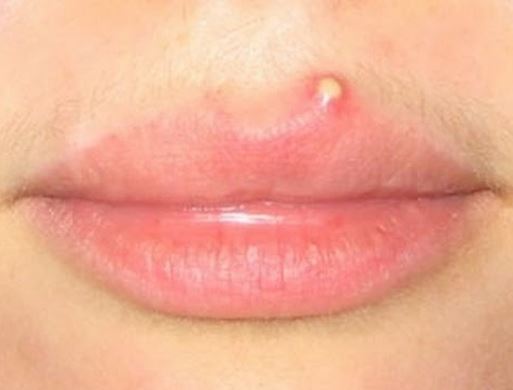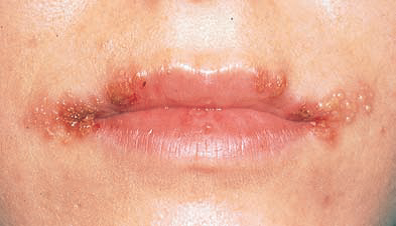


The sight of a pimple is irritating. It can appear anywhere on your body. Many people ask “Can you get a pimple on your lip?” The simple answer is yes. It looks bad anywhere on the face, and even worse when appears at the edge of your lips which interferes with eating and talking. Luckily, you can find a number of remedies to help prevent and treat pimples around your mouth.
The red little bump with or without a white tip can appear anywhere on your body, so the answer is yes. While you do not usually get it exactly on your lips, it is quite common on the edge of your lips. You are more likely to get pimples in these areas if acne runs in your family. You do not remove makeup completely before going to sleep, or you consume too much of dairy products. Certain medications, including corticosteroids can lead to acne breakouts. Hormonal changes and stress may also contribute to pimples.
Now that you know you can get a pimple on the lip, you may also be wondering what causes it in the first place. When hair follicles become clogged with dead skin and sebum, you get pimples. Sebum is vital for keeping your skin moisturized, but excessive sebum production and dead skin cells can clog those pores and lead to pimples. The following factors may also contribute to pimples:


Many people ask the question “Can you get a pimple on your lip?” because they mistake what they have for a cold sore. Since both pimples and cold sores can appear near your lips, it could be difficult to tell.However, you have a pimple if it is red with a white head, whereas cold sores are viral infections and look more like blisters. You usually experience a tingling sensation before cold sores develop, but that is not the case when you have pimples.
Okay, so you now clearly know the answer to your question “Can you get a pimple on your lip?” You may also be wondering what treatment options are available once you do get a pimple. The treatment option depends on the severity of your condition. If you have mild to moderate acne, use OTC creams and soaps, and take the following steps:
In addition to the basics above, there are also a few remedies you can easily try at home:
When OTC measures do not work, you may consider contacting your dermatologist and use a medical treatment for relief. There are medical treatments to help control acne breakouts, prevent scarring, and make scars less noticeable.
Some acne medications will help lower the production of oil, which in turn will keep you from having clogged pores. These medications also reduce inflammation and fight bacterial infections, which will help prevent scarring. Keep in mind that it usually takes up to 8 weeks for prescription acne medications to produce results. So, be patient and talk to you doctor immediately if you notice any side effects.